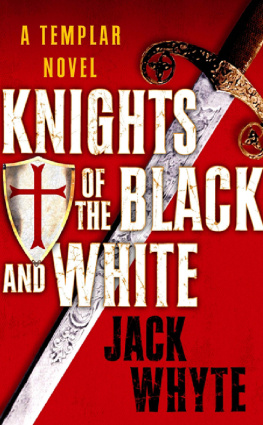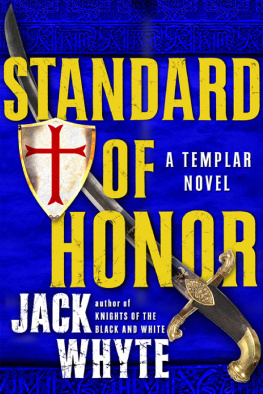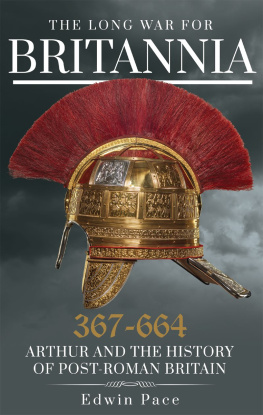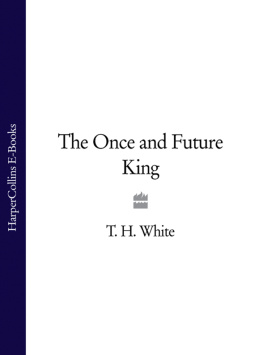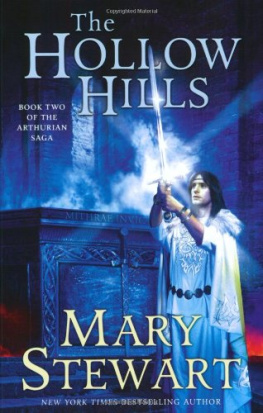
A DREAM OF EAGLES
The Sky stone
The Singing Sword
The Eagles 'Brood
The Saxon Shore
The Sorcerer: Book I: The Fort at River's Bend
To my wife Beverley
ACKNOWLEDGMENTS
I have dedicated each book in this cycle to my wife, Beverley, because she has been the one who has lived with the writing of itone single, huge chroniclesince its inception in 1978, in a condition that too frequently verged upon what used to be known as "grass widowhood." To this point, however, I have made no other attempt to acknowledge any other contributions or contributors, irrespective of, or perhaps because of, the fact that there have been so many.
Few things can be more daunting than the contemplation of the task of writing, then refining and eventually finding a publisher for a first book, let alone a quartet of books, when you are a complete unknown. There are legions of people who rush to warn you of the impossibility of what you hope to achieve. Heartfelt thanks and appreciation, therefore, to all my friends who didn't. So many people have endeared themselves to me over the years by not saying "Are you still slugging away at that?" that it would be impossible to name them. Some, however, have been even more supportive.
Bob Sharp of Calgary, Alberta, is the man who got me started on this whole thing, the only man I have ever met whose reading tastes and mine coincide absolutely. We sat together one day, fifteen years ago, wondering how the sword got into that stone and how the boy was able to pull it out. Suddenly I remembered something from my boyhood, a lightning succession of synapses triggered immediately, and I knew how it had been done!
Robert A. Willson of Calgary demonstrated early on that he could recognize a winner in Caius Britannicus, and Peter C. Newman steadied and readied me on my first public appearance as a bona fide Author, Ray Addington of Vancouver, B.C., went digging in the antique shops of Colchester to find five Roman pennies that Publius Varrus might have handled. My friend Bill McKay demonstrated to me most effectively that a creative artist is seldom truly effective as a pragmatic businessman, and then shook his head ruefully as he held me aloft to drip dry. Alma Lee of the Vancouver Writers' Festival and Ann Cowan of Simon Fraser University guided my feet towards succour in the form of Marian Hebb, literary lawyer extraordinaire. Joyce Elliott, a friend for many years, read the original manuscript before anyone else and thereafter kept me on the straight and narrow path of fidelity to my tale.
Professor Jim Russell of the Department of Classical Archaeology at the University of British Columbia advised me on where to dig for information on Roman Britain. I should state here, however, that any errors of authenticity in my work are attributable only to my fiction, and not to Jim's guidance. My friend Michael McCrodan read the first manuscript in draft and refrained from discouraging me.
There are many more, but most specifically I wish to thank my editors, Kirsten Hanson and Catherine Marjoribanks. These ladies, between them, taught me what objective professionalism can achieve when allied with fervent enthusiasm. To each, and to all, my thanks.
Jack Whyte Vancouver, British Columbia November 1993

The Legend of the Skystone
Out of the night sky there will fall a stone
That hides a maiden born of murky deeps,
A maid whose fire-fed, female mysteries
Shall give life to a lambent, gleaming blade,
A blazing, shining sword whose potency
Breeds warriors. More than that,
This weapon will contain a woman's wiles
And draw dire deeds of men; shall name an age;
Shall crown a king, called of a mountain clan
Who dream of being drawn from dragon's seed;
Fell, forceful men, heroic, proud and strong,
With greatness in their souls.
This king, this monarch, mighty beyond ken,
Fashioned of glory, singing a song of swords,
Misting with magic madness mortal men,
Shall sire a legend, yet leave none to lead
His host to triumph after he be lost.
But death shall ne'er demean his destiny who,
Dying not, shall ever live and wait to be recalled.
PROLOGUE
I cannot think of Camulod without thinking of horses. They were everywhere and they dominated my boyhood. The life of the place revolved completely around themthem and the men who rode themand the earliest sights and smells I can remember are those of the stables. Almost half of the entire hilltop on which the fort was built was given over to stables and exercise yards, and a huge, barren campus, or drilling ground, had been created on the plain at the bottom of the hill. At any hour of the day, you would find up to a dozen separate groups of horsemen there, wheeling and manoeuvring at the walk, the canter or the gallop, and sometimes charging in great, massed formations, so that in the summer months a pall of dust hung over the plain and never settled. Horses, and the noises and the smells of horses, were a constant and unchanging fact of life in Camulod, and every generation of them bred there was bigger than the one that had produced it.
I did not know that at the time, of course, because I was a boy, and to my eyes they grew ever smaller. As a very small child I was dwarfed by the horses of the mounted troopers I admired as gods. As a boy of eight, they still made me feel small until I mounted one of them. But as a youth, approaching man's stature, I found that they had become reasonably sized.
Throughout my boyhood, Publius Varrus, who was my great-uncle and my guardian in the absence of my father, kept entire crews of smiths working in revolving shifts in six separate smithies, four within the fort itself and two more in our villa on the plain beneath the hill. The fort smithies were completely dedicated to the needs of the cavalry. Two of them made nothing but horseshoes and harness and armour. A third made nothing but nails, thousands upon thousands of them: nails for horseshoes and nails for building barracks and stables and stalls; small nails and studs for boots; and rivets for leather and armour. In later years, this manufactory also produced the bronze and iron wire for the tiny loops that we joined to make the chain link armour our horsemen used. The fourth smithy in the fort produced weapons for the riders: spears, swords and daggers, fitting products for the largest and the noisiest forge of all.
On the plain below, the villa smithies supplied the rest of our Colony, producing all of the farming tools and implements and the thousands of utensils required for their daily working needs by a population of upwards of four thousand people.
In Camulod today, the fort, the smithies and the great, barren drill field below the hill lie empty and unpeopled. The villas that it guarded are no more. They are burned, torn down, despoiled, defaced, their glorious mosaics ruptured and destroyed. The Colonists who lived there are dead for the most part, the few, forlorn survivors scattered on the winds. I alone remain, ancient in years but filled with youthful memories, living hidden in the hills close by the Colony, in solitary sanctuary, railing at the heavens by night, and thanking them by day for leaving me with my hands, and my mind, sufficiently intact to allow me to set down my tale.
Next page

